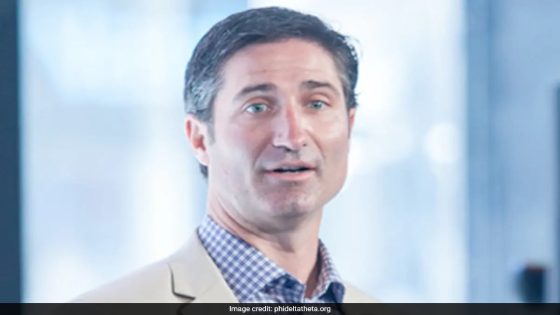While it’s true that as we age, we lose bone mass and density, becoming weak or frail certainly isn’t inevitable. In fact, it’s possible to become even stronger as you get older—if you just make a conscious effort to get there.
We start to lose bone density as early as age 30, which means if you aren’t already taking steps to prevent osteoporosis, now is the time to start. But what actually makes a difference? Here, endocrinologists share the number one way to keep your bones strong, especially as you age.
Related: This Is the #1 Thing People Over 50 Should Consume Every Day for Strong Bones, According to Geriatricians
What Causes Osteoporosis and Who Is Most at Risk?
“Osteoporosis is defined as a silent bone disorder that leads to compromised bone strength leading to a high risk of fractures. It is also termed as low bone density,” says Dr. Chhaya Makhija, MD, DipABLM, an endocrinologist and the CEO of Unified Endocrine and Diabetes Care. She adds that osteoporosis can also be a clinical diagnosis where a bone density scan reveals normal numbers (T scores) or slightly low scores, but the individual has sustained fragility or low trauma fractures, like falling from a standing height. “This is severe osteoporosis and raises the risk of subsequent fractures,” she says.
Dr. Makhija explains that the risk for osteoporosis increases as we age, particularly for women because a decrease in estrogen (which happens during menopause) is associated with lower bone density. Dr. Libu Varughese, MD, an endocrinologist and Medical Advisor at Aeroflow Diabetes, adds to this, saying that it’s important for everyone to actively take steps to prevent osteoporosis after the age of 50, especially for women, since menopause is the most common cause of developing osteoporosis.
Related: The #1 Best Strength Training Exercise for Bone Health, According to Personal Trainers for Seniors
Post-menopausal women are not the only ones at increased risk for osteoporosis. Dr. Varughese says that people with diabetes, chronic smokers or drinkers and those with a family history of hip fractures or osteoporosis are also at a higher risk.
Both doctors explain that what causes osteoporosis is when bone loss happens at a faster rate than bone formation. “Lack of adequate nutrients, excessive weight loss, eating disorders like anorexia nervosa and malabsorption of calcium and vitamin D can worsen bone loss. Steroids are notorious for causing a rapid decline in bone density and patients in the long term are at higher risk for vertebral fractures, and fragility risk factors,” Dr. Makhija says.
Related: This Is the #1 Sign of Healthy Bones, According to Endocrinologists
The Best Way To Prevent Osteoporosis, According to Endocrinologists
Dr. Makhija emphasizes that when it comes to osteoporosis, prevention is key. Both doctors say that the very best way to prevent osteoporosis is regular strength training. “Stay active and focus on weight-bearing and muscle-strengthening exercises to improve your muscle mass, bone mass and balance,” Dr. Makhija says. Scientific research backs this up, showing that strength training is an effective way to prevent both bone and muscle loss.
“Physical activity is one of the best prescriptions that can help us even if we have risk factors for low bone density. It is well known in science that humans lose muscle as we age and loss of muscle leads to a higher risk of falls,” Dr. Makhija says.
Dr. Varughese says that core strength training in particular is a good way to prevent falling, which is more likely to occur when bones and muscles are weak. “If you have core strength, you’re less likely to lose your balance and have a devastating fall,” he says. Dr. Makhija agrees, saying, “Good muscle strength and mobility help in the reduction of fragility fractures. Muscles are attached to the bones, so muscle contraction helps to also stimulate bone cells [and help with] bone formation.”
As Dr. Varughese mentioned, having diabetes ups the risk for osteoporosis. This is because chronically high blood sugar can impact bone metabolism, causing lipid accumulation in the marrow of long bones, which reduces the number of osteoblasts (cells required for bone synthesis) available for bone formation. Because of this, he says that diet and exercise habits that can help with maintaining a healthy weight and protecting against diabetes is another way to prevent osteoporosis.
In terms of nutrients that can be especially important to be mindful of when it comes to osteoporosis prevention, Dr. Varughese says that vitamin D and calcium are the two big ones to focus on because they play an important role in keeping bones strong. Dr. Makhija says it’s also important to get enough protein, a nutrient that makes up 50% of bone volume and one-third of its mass.
As you can see, diet and exercise are both important factors when it comes to keeping bones strong. If you don’t do any form of strength training now, consider this your sign to start. Keep it up and you’ll become stronger as you age, not weaker.
Up Next:
Related: ‘I’m an Osteoporosis Specialist, and This Is the Type of Cheese I Swear By for Bone Health’
Sources
Source Agencies



